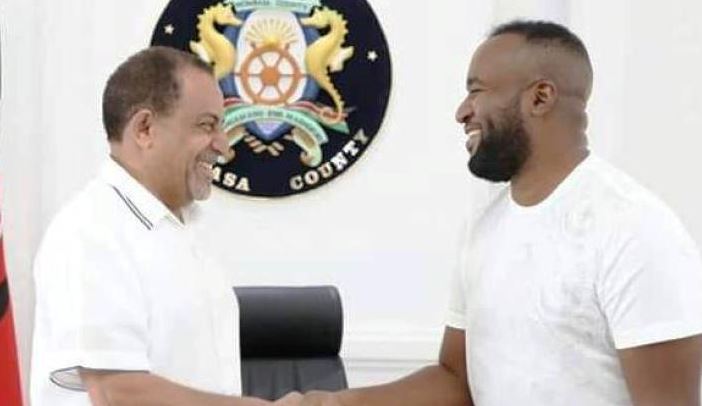×
The Standard e-Paper
Fearless, Trusted News

Former rivals Governor Hassan Joho and Suleiman Shahbal have developed a special political relationship that has sparked debate on the county leadership’s succession battle in 2022.
In the last few months, the two have shown their bromance in public, with Shahbal rallying Jubilee leaders and Mombasa business community to support Joho’s plan to combat Covid-19.